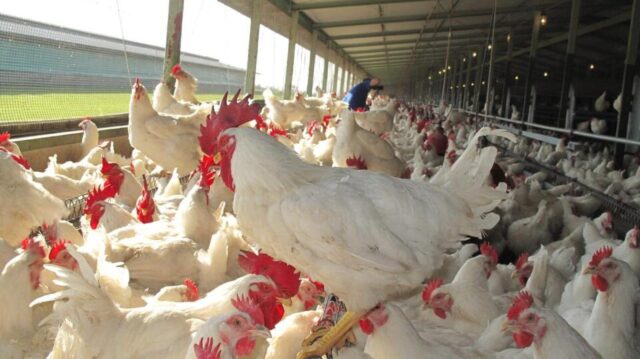The South African Poultry Association has reassured consumers that there will be no poultry shortage over the festive season.
THE SOUTH African Poultry Association (Sapa) has reassured consumers that there will be no poultry shortage due to avian influenza and the industry is importing enough hatching eggs to alleviate any potential shortages.
Sapa was responding to the Association of Meat Importers and Exporters of Southern Africa (Amie), which on Tuesday warned consumers to prepare for a ramp up in poultry prices over the festive season and into the new year.
Paul Matthew, the CEO of Amie, said this was due to the cumulative effect of the poultry shortages caused by the highly-pathogenic avian influenza (bird flu) outbreak, coupled with a failure of the government to timeously introduce a rebate on import tariffs and other emergency measures.
“To address the poultry shortages caused by the bird flu outbreak, the local poultry industry has imported 83 million fertilised eggs. Given the fact that they have been imported on an urgent basis, they are coming in at three times the price of a locally-grown day-old chick,” Matthew said.
“It’s inevitable that this cost will result in price increases, which will of necessity be passed onto consumers. These price increases have not yet made it onto the shelves, as it affects poultry not yet in the market. However, we expect that this product will enter the market in the first quarter of 2024, with a hefty price increase,” he said.
According to the Pietermaritzburg Economic Justice and Social Dignity Group’s October Household Affordability Index, the price of eggs increased by 19% between September and October this year, and 36% between October last year and October this year.
Chicken feet and gizzards increased by 8% year on year and chicken livers by 14%.
Sapa CEO Izaak Breitenbach said, “There will be no meat shortage due to avian influenza. Due to the disease, flocks were culled and the production of hatching eggs reduced by 30%. Producers are making up the 30% shortage by importing enough hatching eggs to alleviate the shortage.
“The first eggs arrived in early October already and the total amount of hatching eggs that will be imported amounts to 100 million hatching eggs for the next four months,” Breitenbach said.
The above actions by the industry had negated the biggest impact on price.
“The (tariff) rebate considered by Minister Ebrahim Patel would only address a shortage of chicken in the market (that doesn’t exist) and will not impact price since importers sell at market prices and by now with the rebate not announced yet it will arrive too late to address the perceived problem,” he said.
Breitenbach said the poultry industry was acutely aware of the plight of the consumer and therefore were importing vast amounts of hatching eggs.
Importing the eggs would be far cheaper than importing a whole chicken or chicken portions for that matter benefiting the consumer, he explained
“Imported meat is a poor substitute for local production and more so now that the ports are overwhelmed and significant delays are occurring in offloading imported product. With no solution in sight for the port problem, giving a rebate to stimulate poultry meat imports would be a poor solution to balance supply and demand. The chicken meat will be delayed on the water for up to 16 weeks,” he added
Meanwhile, the Department of Trade, Industry and Competition told Business Report that the Competition Commission was closely monitoring the developments in the poultry sector to ensure that consumers were not subjected to unjustified price increases.
– BUSINESS REPORT








